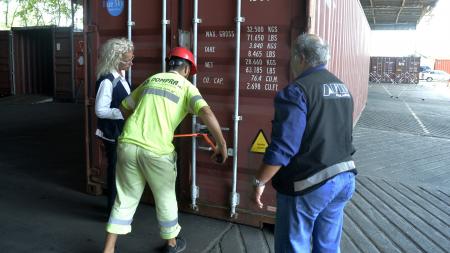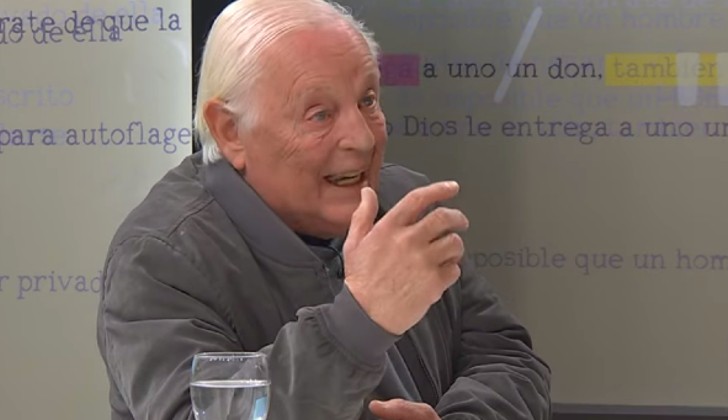The General Directorate of Customs (DGA) has 24 of its own scanners and manages the purchase of another fivewith the objective of expanding and optimizing physical controls in ports and border crossings throughout the country, to prevent smuggling and drug trafficking and thus protect national industry and work.
In this sense, the organization led by Guillermo Michel takes into account various factors, such as the fact that the port of Buenos Aires controls between 75 and 80 percent of the country’s total imports.
While the terminals of other jurisdictions, such as San Lorenzo, Rosario and Santa Fe, among others, control between 75 and 80 percent of total exports.
The body whose main function is to prevent the illegal entry into the country of goods, is working on a loan from the Inter-American Development Bank (IDB) to purchase five of its own truck scanners at an estimated cost of US$3.5 million each.
Likewise, it advances in summons to the port terminals of Argentina in the hands of private operators so that they invest in a continuous flow arc scannerstate-of-the-art technology that demands between US$5 million and US$6 million per unit, in order to improve non-intrusive reviews.
Now, the DGA has only one scanner of this type and it is located in Terminal 4 of the port of Buenos Aireswhich allows controlling 800 containers per day, of which 80% corresponds to imports and the remaining 20% to exports.
In turn, of that 20% of exports, 80% is scanned and only 5% yield results in situations mostly related to smuggling, said Rosana Ludovico, deputy general director of Metropolitan Customs Operations.
From the DGA they maintain that “you have to buy at least four (scanners) because you have to update” and add where there is none, such as the cases of the Bernardo de Irigoyen pass in Misiones (with Brazil) and the Jama Pass in Jujuy.
During a meeting with the press, Michel said of the Jama Pass, which allows passage to Chile: “It is a place at 4,400 meters high that is working a lot due to mining and we are also anticipating all the commercial flow due to the issue of lithium”.
This way, The official not only stressed the need for investment in technology and infrastructure, but also anticipated what is coming in terms of the trade of this mineral, for which Argentina will bet heavily during the current year and the next.
In this sense, Michel commented that a used scanner that was in the Customs department in the Buenos Aires town of Campana will be used temporarily, “but a new one is needed, not only because of the lithium, but because many trucks are coming from Paraguay that make the Chile-Iquique Paraguay-Asunción routes using the Argentine routes,” he said.
A fast track for health products
On the other hand, in recent months, Customs has made progress in streamlining the processes for importing essential products and supplies related to health since the creation, in August 2022, of the Customs Health Assistance Bureau.
The coordinators of said Table, Christian Astudilla and Nahuel Marchese, finalized this week the delivery of 130 wheelchairs, two motorized chairs, 23 standing frames and accessories for assembly and spare parts for wheelchairs, which were awarded to patients of social works and prepaid from all over the country.
Similarly, upon detecting problems in the supply of input suppliers for Vaca Muerta, the DGA developed “a green channel for this item,” said Michel.
For the Chamber of Importers of the Argentine Republic (CIRA) “we make it possible to return to imports via courier for up to US$ 3,000 when they bring spare parts for SMEs,” added the official, alluding to the national policy of favoring imports of goods destined for to national production.
The organization in charge of Michel also made progress in the definition of donations of seized merchandise, such as the agreement signed last week between the DGA, the Ministry of Security and the General Secretariat of the Presidency, by which they delivered for the first time a batch of 163 tires (valued at $40 million) to the portfolio led by Aníbal Fernández, destined for the Security Forces.
In this sense, from the customs agency they anticipated that they are working on “a draft decree to make a massive donation for sustainable housing, schools, first aid rooms” with “around a thousand” disused containers.
In recent years, the conditioning of disused containers has expanded to convert them into offices, premises, classrooms and even homes and hotels.









